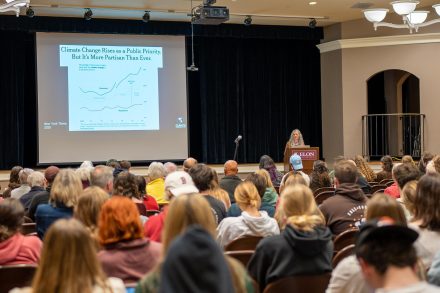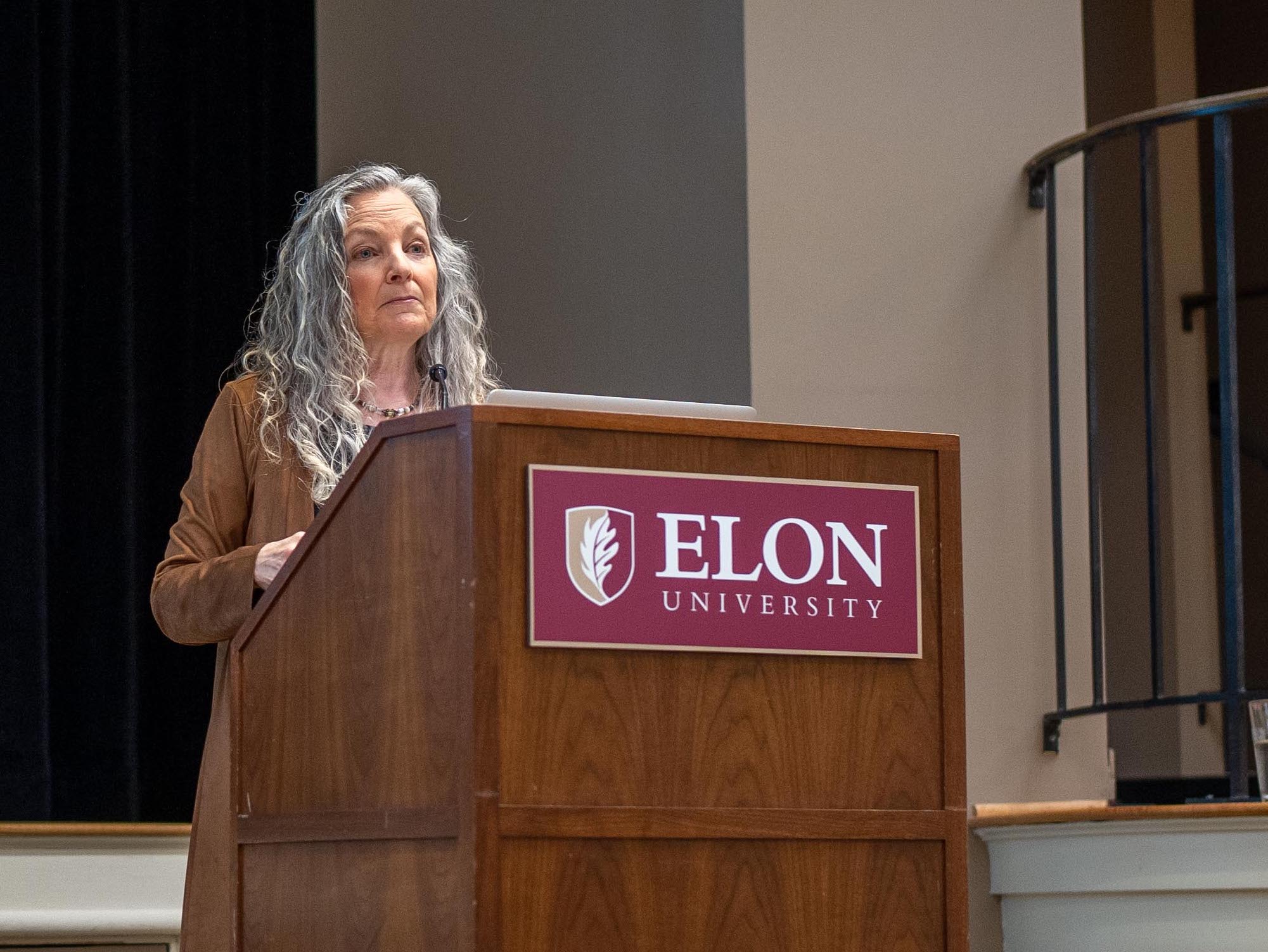Hassol, an award-winning climate change communicator, spoke on Tuesday, April 19 to kick off a series of Earth Week events.
To kick off Earth Week at Elon University, author and Climate Communication Director Susan Joy Hassol delivered the keynote address on the current environmental state in a talk titled, “The Climate Crisis: Reasons for Hope.”
The focus of Hassol’s presentation was to explain the possible solutions that individuals and society could implement in response to climate change. “I hope I can give you some reasons for hope tonight, as what we do in the next few years is absolutely critical, and each of us has a role in that,” Hassol said.

Hassol spoke at McKinnon Hall on Tuesday, April 19, at 7:30 p.m. Her talk was open to the public and was one of many Earth Week events hosted by Elon’s Office of Sustainability. Other events this week include Party for the Planet, a Wellness Walk, and a Pop-Up Swag Shop. These events all serve as an opportunity for Elon students, faculty, and staff to examine their own habits as they relate to sustainability.
Hassol was introduced by Hannah Miller ‘23, the communications intern for Elon’s Office of Sustainability. Miller talked of Hassol’s long list of achievements, which include authoring the most recent report from the Intergovernmental Panel on Climate Change (IPCC). Hassol has testified to the United States Senate and has written and edited numerous high-level reports including the first three U.S. National Climate Assessments. She has written an HBO documentary and penned popular articles and editorials for Boston Globe, The New York Times, Los Angeles Times, and Scientific American in recent months.
Throughout the hour-long speech, Hassol shared her vision for the future, and the myriad benefits that could come from acting against climate change. She shared graphs and charts that illustrated the long-term effects of climate change along with global attitudes towards climate change.
“The future is in our hands. We get to decide what kind of future we get to have,” Hassol said. “We must understand the seriousness of the threat and pair that with solutions.”
Citing examples of youth who have acted against climate change, Hassol listed simple changes that students could make to reverse climate change. These changes included riding a bike or walking instead of driving, talking to representatives, and having discussions about the climate crisis.
Hassol concluded her speech by providing reasons for hope. She explained that since climate change is a man-made problem, it also has man-made solutions. Hassol shared recent examples of clean energy changes that have been implemented across the globe, including the increasing use of alternative energy sources such as wind and solar energy.
“No one can do everything, but everyone can do something,” Hassol said, as she encouraged members of the audience to act in any way they could.
After Hassol concluded her presentation, Assistant Director of Sustainability for Education and Outreach Kelly Harer invited students and other audience members to ask Hassol questions.
The talk was sponsored by the Office of Sustainability, the Center for Environmental Studies, the Doherty Center for Creativity, Innovation and Entrepreneurship, the Kernodle Center for Civic Life, and the Strategic Communications Department.
More information about the Office of Sustainability’s Earth Week Events can be found here.



